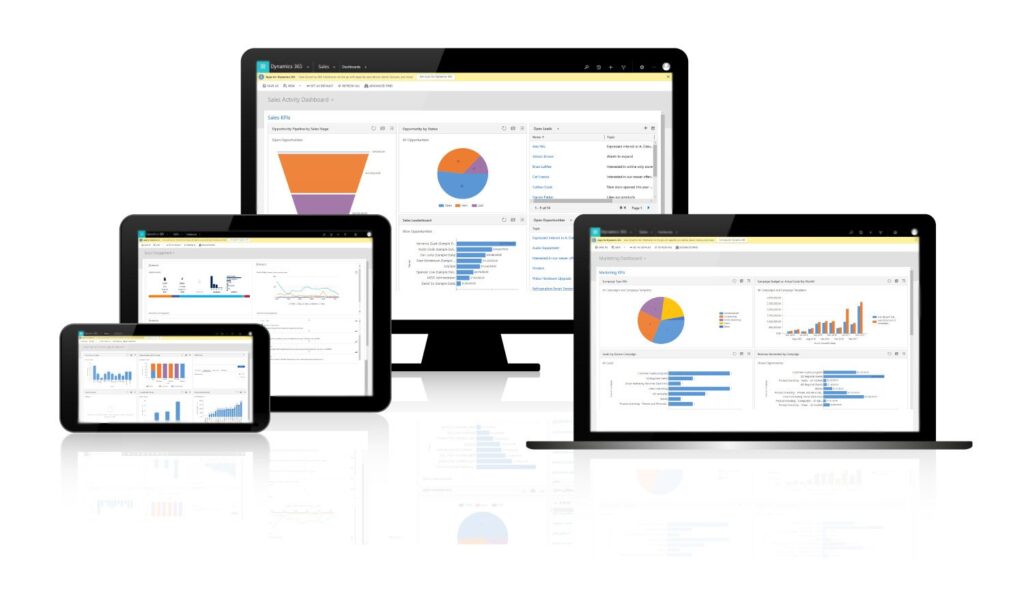
Choosing the right enterprise resource planning (ERP) system is of paramount importance for businesses due to several key reasons:
- Streamlining Operations: A well-implemented ERP system helps streamline and automate various business processes across departments. It eliminates manual and repetitive tasks, reduces errors, and enhances overall efficiency. By integrating data and workflows, an ERP enables smooth communication and collaboration, leading to improved productivity and operational effectiveness.
- Data Centralization and Visibility: An ERP system centralizes data from different departments and functions, providing a unified view of the organization’s operations. This comprehensive data visibility enables real-time tracking and reporting, facilitating informed decision-making at all levels. Managers gain valuable insights into business performance, enabling them to identify areas for improvement, make data-driven decisions, and respond quickly to market changes.
- Enhanced Customer Relationship Management: A robust ERP system often includes customer relationship management (CRM) functionalities, allowing businesses to manage customer interactions and relationships effectively. Integrated CRM capabilities enable organizations to track customer interactions, manage sales pipelines, provide personalized services, and improve customer satisfaction. This holistic view of customer data helps nurture relationships, drive sales, and foster long-term customer loyalty.
- Improved Supply Chain Management: An ERP system optimizes supply chain management by providing real-time visibility into inventory levels, procurement, production, and distribution. This visibility helps organizations manage inventory efficiently, reduce stockouts, improve order fulfillment, and enhance supplier collaboration. Streamlining supply chain processes through an ERP system reduces costs, minimizes delays, and ensures timely delivery, ultimately increasing customer satisfaction.
- Regulatory Compliance and Risk Management: Businesses must comply with industry-specific regulations and standards. An ERP system can incorporate compliance measures and automate processes to ensure adherence to regulatory requirements. By maintaining accurate records, enabling traceability, and implementing proper controls, an ERP system reduces the risk of compliance violations, financial penalties, and reputational damage.
- Scalability and Growth: As businesses expand and evolve, scalability becomes crucial. A scalable ERP system accommodates growth by allowing organizations to add users, functions, and modules as needed. This scalability supports business expansion into new markets, mergers and acquisitions, and diversification of product lines. An ERP system that can adapt to changing business needs facilitates seamless growth and minimizes disruption.
- Cost Optimization: Implementing an ERP system can result in cost savings in various ways. By automating manual processes, reducing errors, and eliminating duplicated efforts, businesses can achieve operational efficiency and reduce labor costs. Additionally, an ERP system improves inventory management, procurement, and production planning, leading to cost savings through optimized resource allocation and reduced waste. Centralized data and streamlined workflows also help businesses negotiate better pricing and terms with suppliers.
- Competitive Advantage: In today’s competitive landscape, businesses need to differentiate themselves to thrive. An ERP system provides a competitive advantage by enabling agility, faster decision-making, and improved customer experiences. By leveraging real-time data and analytics, organizations can identify market trends, seize opportunities, and respond swiftly to changes, gaining an edge over competitors.
A modern ERP solution empowers organizations to integrate and automate their core business processes, making it essential to evaluate key factors when selecting the right platform.
Below we explore 10 important considerations and highlight why Microsoft Dynamics 365 emerges as the premier choice in the realm of modern ERP systems.
- Flexibility and Scalability
When choosing an ERP, flexibility and scalability are paramount. Microsoft Dynamics 365 offers a modular structure, allowing businesses to select the specific functionalities they require. Moreover, it provides scalability to accommodate growth, making it suitable for both small organizations and large enterprises.
- Integration Capabilities
Seamless integration with existing systems and applications is vital for efficient data exchange and enhanced productivity. Microsoft Dynamics 365 excels in this aspect, offering robust integration capabilities with popular tools like Microsoft Office 365, SharePoint, and Power BI, facilitating smooth workflow management.
- Cloud-based Deployment
Cloud-based ERP solutions provide numerous benefits, including accessibility, scalability, and cost-effectiveness. Microsoft Dynamics 365 is a cloud-native platform, enabling organizations to leverage the power of the cloud while eliminating the need for complex infrastructure maintenance.
- Mobile Accessibility
In today’s mobile-driven era, having on-the-go access to business-critical information is essential. Microsoft Dynamics 365 offers mobile apps compatible with iOS, Android, and Windows devices, ensuring that employees can access and manage data from anywhere, facilitating real-time decision-making.
- Advanced Analytics and Reporting
Data-driven insights play a crucial role in strategic decision-making. Microsoft Dynamics 365 incorporates powerful analytics and reporting capabilities, leveraging Microsoft Power BI. This empowers organizations to gain actionable insights from their data, enabling them to optimize processes and drive growth.
- Enhanced Security and Compliance
Security and compliance are top priorities for any business. Microsoft Dynamics 365 adheres to stringent security standards, providing robust data protection and encryption. Additionally, it complies with various regulatory frameworks, ensuring organizations meet industry-specific requirements.
- Customer Relationship Management (CRM) Integration
A modern ERP system should seamlessly integrate with CRM functionalities to streamline customer-centric operations. Microsoft Dynamics 365 combines ERP and CRM capabilities, enabling organizations to manage sales, marketing, and customer service activities holistically, resulting in improved customer satisfaction and retention.
- Industry-Specific Functionality
Different industries have unique requirements that a modern ERP system must cater to. Microsoft Dynamics 365 offers industry-specific functionality and templates, empowering organizations to tailor the system to their specific needs. This ensures optimal alignment with industry standards and regulations.
- Ease of Use and User Experience
Adoption and usability are critical factors for successful ERP implementation. Microsoft Dynamics 365 features an intuitive user interface and offers a familiar Microsoft Office-like experience, reducing the learning curve and facilitating user adoption across the organization.
- Support and Ecosystem
The availability of a robust support system and a thriving ecosystem is essential for long-term success with an ERP solution. Microsoft Dynamics 365 benefits from Microsoft’s extensive support network and a vast ecosystem of partners, ensuring prompt assistance and access to additional resources.
Summing Up
Selecting the right ERP system is vital for businesses as it drives operational efficiency, improves decision-making, enhances customer relationships, optimizes supply chain management, ensures compliance, supports scalability, reduces costs, and provides a competitive advantage. It is a strategic investment that lays the foundation for growth, productivity, and success in the modern business landscape.





